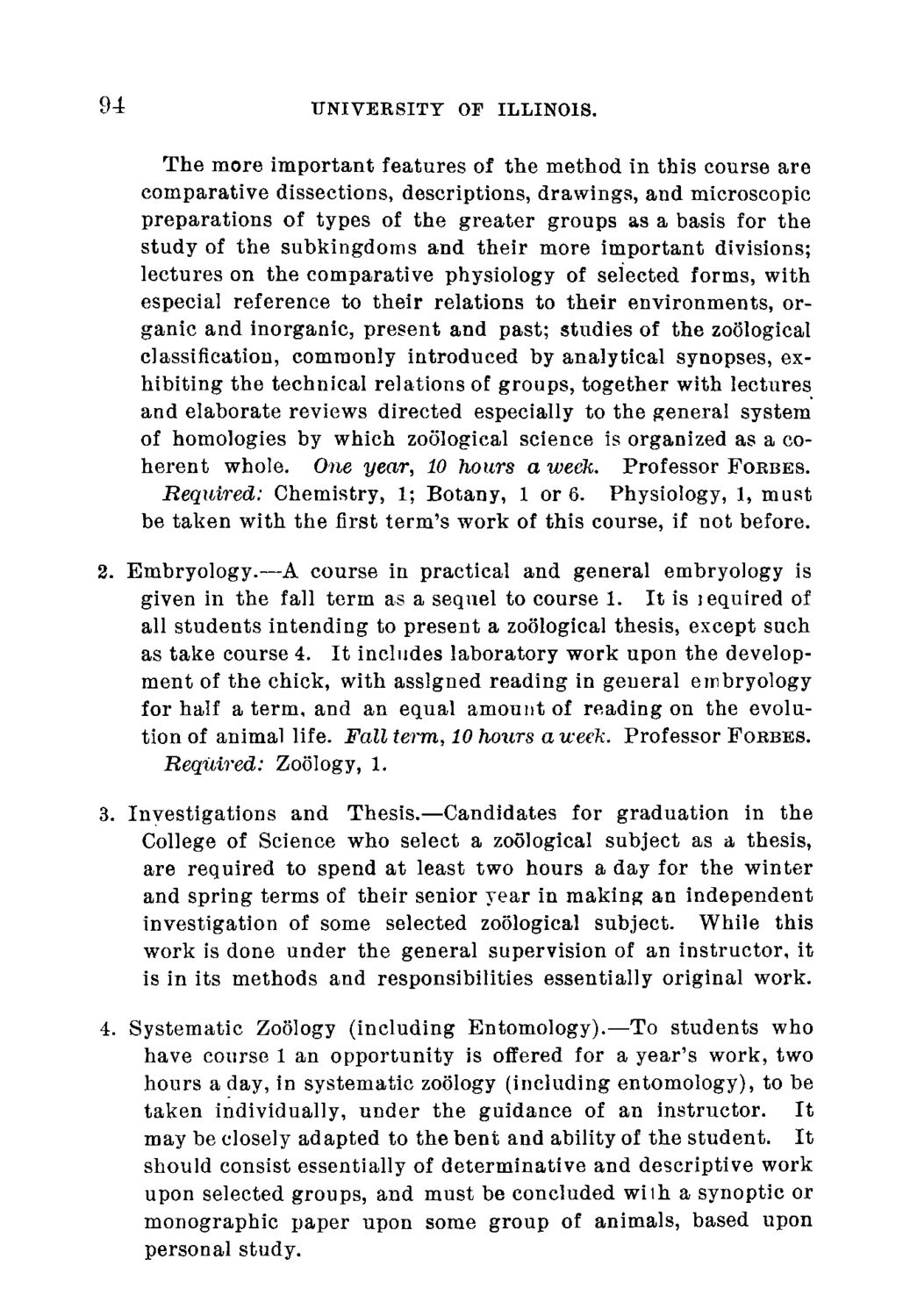| |
| |
Caption: Course Catalog - 1891-1892
This is a reduced-resolution page image for fast online browsing.

EXTRACTED TEXT FROM PAGE:
94 UNIVERSITY OF ILLINOIS. The more important features of the method in this course are comparative dissections, descriptions, drawings, and microscopic preparations of types of the greater groups as a basis for the study of the subkingdoms and their more important divisions; lectures on the comparative physiology of selected forms, with especial reference to their relations to their environments, organic and inorganic, present and past; studies of the zoological classification, commonly introduced by analytical synopses, exhibiting the technical relations of groups, together with lectures and elaborate reviews directed especially to the general system of homologies by which zoological science is organized as a coherent whole. One year, 10 hours a week. Professor FORBES. Required: Chemistry, 1; Botany, 1 or 6. Physiology, 1, must be taken with the first term's work of this course, if not before. 2. Embryology.—A course in practical and general embryology is given in the fall term as a sequel to course 1. It is lequired of all students intending to present a zoological thesis, except such as take course 4. It includes laboratory work upon the development of the chick, with assigned reading in general embryology for half a term, and an equal amount of reading on the evolution of animal life. Fall term, 10 hours a week. Professor POBBKS. Required: Zoology, 1. 3. Investigations and Thesis.—Candidates for graduation in the College of Science who select a zoological subject as a thesis, are required to spend at least two hours a day for the winter and spring terms of their senior year in making an independent investigation of some selected zoological subject. While this work is done under the general supervision of an instructor, it is in its methods and responsibilities essentially original work. 4. Systematic Zoology (including Entomology).—To students who have course 1 an opportunity is offered for a year's work, two hours a day, in systematic zoology (including entomology), to be taken individually, under the guidance of an instructor. It may be closely adapted to the bent and ability of the student. It should consist essentially of determinative and descriptive work upon selected groups, and must be concluded with a synoptic or monographic paper upon some group of animals, based upon personal study.
| |